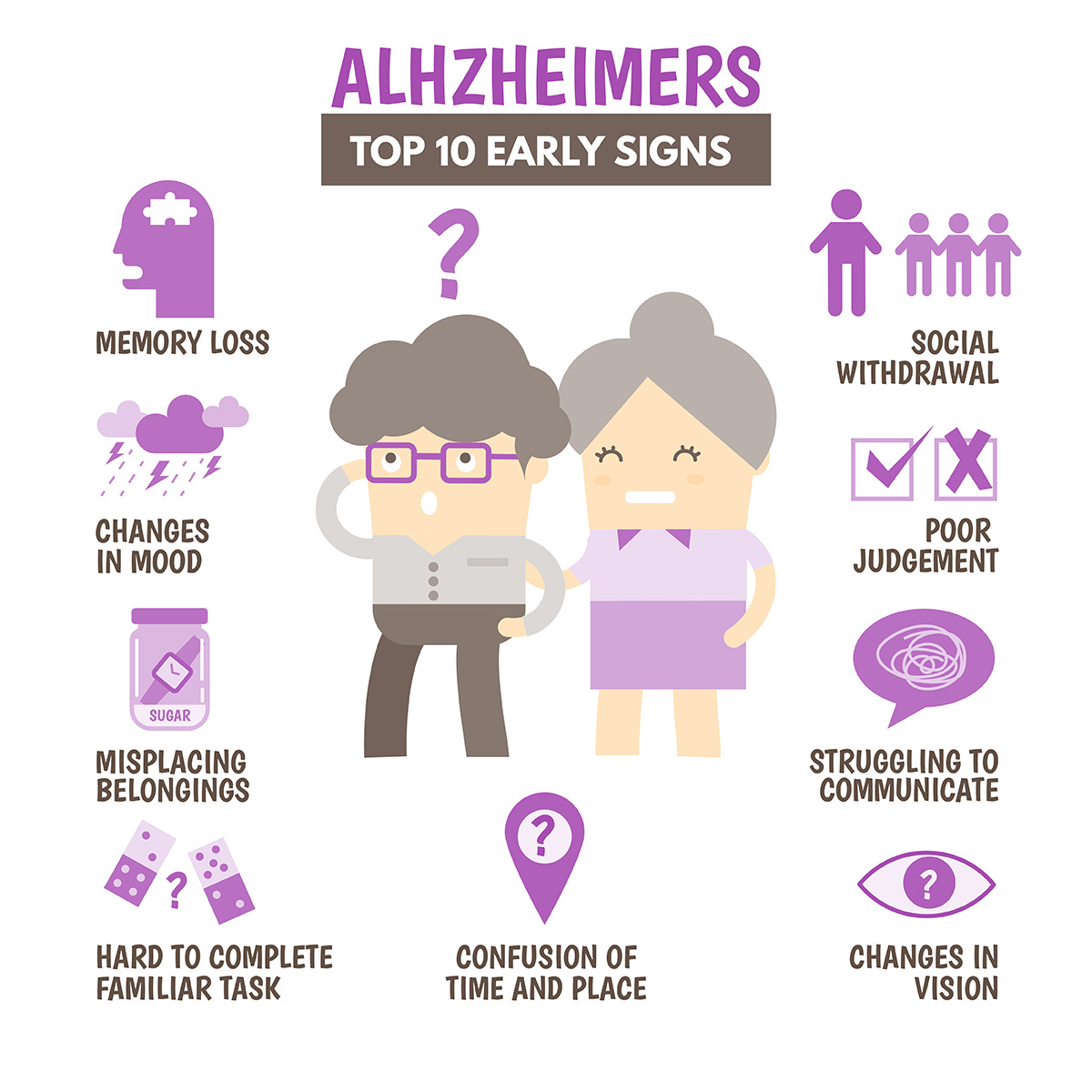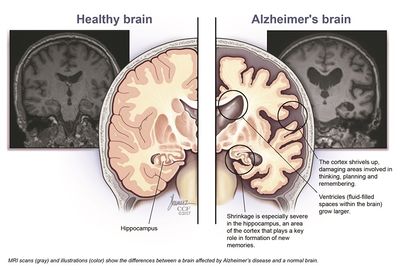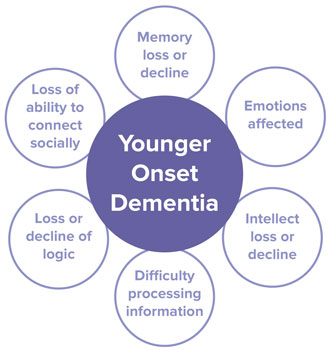How Caregivers Can Minimize Fall Risk at Home
Comprehending the Impact of Mental Deterioration on Every Day Life and Caregiving
Mental deterioration affects life in extensive ways, impacting not simply those diagnosed but also their caretakers. As cognitive decline proceeds, you may notice adjustments in communication and routine that challenge both events. Recognizing these shifts is important for keeping dignity and involvement. However how do you adjust your caregiving strategies to sustain someone traversing this complicated journey? The responses might shock you as we explore the nuances of this experience.
The Stages of Dementia and Their Impacts on Day-to-day Live
As you navigate the journey of dementia, understanding its phases can substantially impact exactly how you take care of day-to-day life. Dementia usually proceeds through 3 major phases: early, middle, and late. In the early phase, you could notice occasional memory lapses or problem locating the appropriate words. This can result in aggravation, however identifying these indicators early aids you adapt your routine and seek support.
Throughout the center phase, you'll experience extra noticeable cognitive decline. Daily tasks could come to be tough, and keeping your independence might call for changes. Making use of tips and streamlining your setting can assist.
In the late phase, people usually require considerable help with day-to-day tasks. Preparation for care ends up being vital, concentrating on comfort and lifestyle. By comprehending these stages, you're better equipped to react proactively, guaranteeing you or your enjoyed one can browse the difficulties with dignity and poise.

Modifications in Interaction and Social Communication
How do changes in communication affect your everyday interactions as dementia advances? As dementia breakthroughs, you could see that simple conversations end up being challenging. Words may escape you, or you may have a hard time to discover the ideal expressions. This can lead to frustration for both you and your loved ones. Nonverbal cues, like gestures or facial expressions, come to be increasingly important.
You might locate it easier to attach via these ways rather of counting exclusively on spoken language. Listening abilities can likewise alter; you might locate it harder to follow discussions or keep in mind what was simply claimed (Early Onset Dementia). This can result in misunderstandings or sensations of isolation
Motivating persistence and developing a supportive setting can help. Involving in tasks that promote connection, like songs or art, can enhance social communications. Remember, preserving relationships is still possible; it's practically adjusting to brand-new ways of interacting.
Impact on Daily Routines and Activities
While maneuvering everyday regimens, you'll likely see that tasks you once completed effortlessly become much more difficult as dementia progresses. You may discover yourself failing to remember actions in acquainted routines or struggling to recall where you positioned items.
Preparation your day can feel frustrating, making it harder to stay with a routine. You may require pointers for visits or to take medications. Adapting your atmosphere can help; as an example, labeling items or making use of lists can streamline jobs. Taking part in repeated, structured activities can also provide convenience and a feeling of achievement. Bear in mind, it's fine to request for aid. Bordering yourself with supportive pals or family can make handling these changes a little bit easier.
Psychological and Behavioral Difficulties
Steering via everyday routines can bring around not just functional difficulties, but behavioral and also psychological ones. You could discover adjustments in state of mind, such as increased anxiousness or aggravation, which can originate from confusion or problem in finishing jobs. As you navigate these minutes, it is important to identify that your loved one might share their sensations through actions like agitation or withdrawal.
These psychological responses can be unforeseeable and might occur without warning, leaving you both sensation bewildered. You may locate that acquainted atmospheres or regimens can help minimize anxiety, however maintaining patience ends up being significant. It is essential to confirm their feelings, even if you don't completely understand them.
The Role of Caregivers in Sustaining People With Dementia
As a caregiver, you play an essential role in offering psychological support for individuals with dementia. Establishing everyday treatment regimens can create a sense of stability and convenience, helping to reduce their anxiety. By comprehending their requirements and utilizing reliable approaches, you can significantly boost their lifestyle.
Emotional Support Methods
When caring for someone with dementia, comprehending the emotional landscape is important for offering reliable assistance. Easy gestures, like holding their hand or keeping eye contact, can create a feeling of safety. Ultimately, do not forget to take treatment of your own emotional needs; looking for support for on your own can improve your ability to care for them.
Daily Treatment Routines
Establishing daily treatment routines is essential for supplying stability and comfort to people with dementia, as these routines can aid decrease complication and stress and anxiety. You can begin by describing a regular schedule for dishes, tasks, and remainder. This predictability helps your liked one really feel much more safe and secure and engaged.
Integrate acquainted jobs, like folding laundry or watering plants, which can stimulate favorable memories and foster a sense of success. Usage visual signs, such as schedules or lists, to direct them with the day.
Be adaptable, though; adapt routines as required based on their mood or power degrees. Early Onset Dementia. Bear in mind, your patience and understanding are important in navigating their changing requirements, guaranteeing they really feel supported and valued throughout their every day life
Producing a Safe and Comfy Living Atmosphere
Developing a comfy and safe living environment is crucial for individuals with dementia. You'll want to make home safety and security alterations that decrease dangers and ensure experience to Vascular Dementia supply a feeling of convenience. By focusing on these aspects, you can help create a space that supports both safety and well-being.
Home Safety Adjustments
As you navigate the difficulties of mental deterioration, making home safety modifications can substantially improve convenience and safety. Label crucial areas, such as the bathroom and kitchen, with clear indicators to aid with positioning. These modifications not only advertise safety yet likewise urge self-reliance, enabling your loved one to feel even more at convenience in their setting.
Comfort and Familiarity
After making certain a safe atmosphere with required modifications, promoting convenience and familiarity is important for people with mental deterioration. Start by individualizing their room. Use acquainted shades, decorations, and photos that stimulate satisfied memories. A favorite blanket or chair can provide a complacency. Preserve a regular routine to help them feel based and minimize anxiousness. Basic, acquainted meals can also produce a soothing ambience. Maintain paths clear and clutter-free to avoid confusion. Integrate soft illumination, as brilliant lights can be disorienting. Take into consideration including comforting aromas, like lavender, to advertise leisure. Taking part in familiar activities, such as listening to songs or horticulture, can boost their feeling of belonging, making their living setting a real sanctuary.
Strategies for Effective Caregiving and Assistance
While steering the difficulties of dementia treatment can really feel overwhelming, implementing effective techniques can significantly improve both the caretaker's and the client's daily experience. Beginning by developing a routine; predictability helps in reducing stress and anxiety for both you and your loved one. Usage clear, easy communication-- brief sentences and direct inquiries can protect against confusion.

Do not neglect to take treatment of on your own; timetable breaks and get in touch with support system. Sharing experiences with others in similar scenarios can give beneficial understandings and psychological relief.
Lastly, continue to be person and adaptable. Mental deterioration can bring unforeseeable changes, so adjusting your strategy is essential. By employing these strategies, you can cultivate a much more positive environment that profits both you and your liked one.
Frequently Asked Concerns

What Are the Various Sorts Of Mental Deterioration?
You'll find several sorts of dementia, consisting of Alzheimer's, vascular mental deterioration, Lewy body mental deterioration, and frontotemporal mental deterioration. Each kind impacts memory and cognitive function in a different way, so comprehending the distinctions is essential for you could look here appropriate diagnosis and care.
How Can I Help Someone With Early-Stage Dementia?
You can aid a try here person with early-stage mental deterioration by holding your horses, offering assistance, and motivating them to participate in tasks they appreciate. Maintaining routines constant and keeping open interaction can likewise make a significant difference in their every day life.
Exist Financial Resources Available for Dementia Care?
Yes, there are funds offered for dementia treatment. You can discover government assistance programs, not-for-profit companies, and insurance coverage options. It's likewise a good idea to speak with local firms for certain resources customized to your circumstance.
What Legal Factors To Consider Should Caregivers Be Aware Of?
As a caretaker, you must think about power of attorney, medical care proxies, and guardianship legislations. It's important to understand the lawful rights and duties you hold, ensuring your enjoyed one gets appropriate treatment and protection.
Just How Can I Manage Caretaker Anxiety?
You can handle caretaker stress by focusing on self-care, looking for support from friends or teams, setting sensible expectations, taking breaks, and practicing relaxation strategies. Remember, your health matters just as high as the person you're taking care of.
Understanding the Impact of Mental Deterioration on Daily Life and Caregiving.
As you browse the journey of mental deterioration, recognizing its stages can substantially influence how you handle day-to-day life.While navigating everyday regimens, you'll likely notice that tasks you as soon as finished easily ended up being extra challenging as dementia proceeds.Developing daily care routines is essential for giving stability and comfort to individuals with mental deterioration, as these regimens can aid reduce confusion and stress and anxiety.While steering the difficulties of dementia treatment can feel overwhelming, implementing effective techniques can substantially boost both the caretaker's and the patient's day-to-day experience.